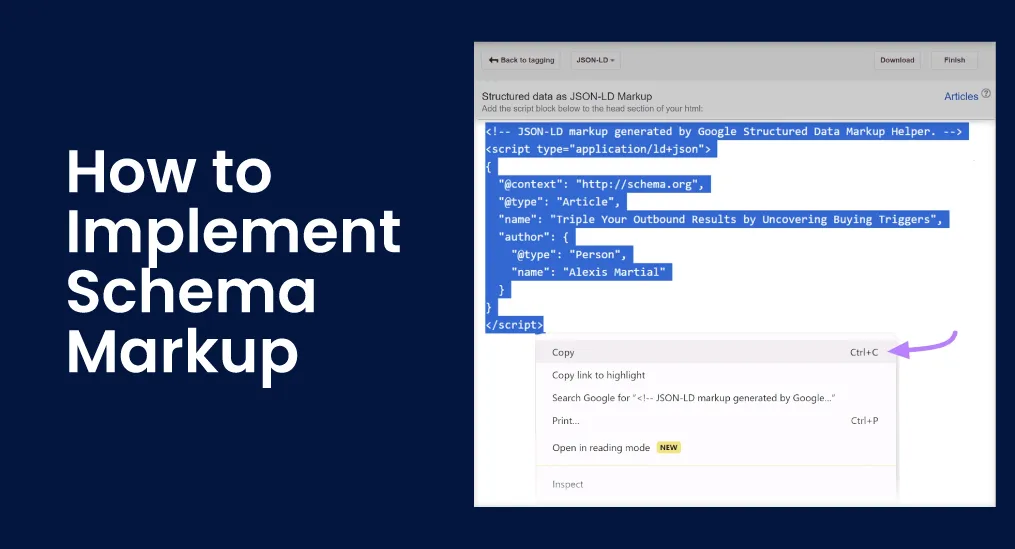In the world of SEO, small advantages can make a big difference. One often-overlooked but powerful tool is schema markup.
Schema markup helps search engines better understand your website’s content, enhancing its visibility in search results. For businesses, implementing local SEO schema markup is a game-changer, making it easier to attract local customers.
Partnering with an experienced SEO agency ensures schema is implemented correctly and optimized for maximum impact.
In this article, we’ll explore what schema markup is, how it works, and how you can use it to improve your website’s search performance.
Let’s get started with:
What is Local SEO Schema Markup?

Local SEO schema markup is a powerful tool that helps businesses connect with their local audience and attract more traffic. It’s a type of structured data that provides search engines with a clearer understanding of your website’s content, specifically for local businesses.
With local schema, you can highlight essential details like your address, phone number, and operating hours. This makes it easier for potential customers to find and contact you, boosting your visibility and accessibility in local search results.
How Schema Markup Works
When search engines crawl your website, they look for clues to understand your content. Schema markup provides these clues in a clear and standardized format, making it easier for search engines to interpret your site.
With schema, you can define:
- Content Type: Specify what’s on the page, like a product, event, or article.
- Details: Include key information such as price, date, or author.
- Context: Show how different elements on your site relate to each other.
This structured data helps search engines analyze your content more effectively, improving its visibility and enhancing how it appears in search results.
Why Use Local SEO Schema Markup?

Local SEO schema is essential for businesses targeting specific geographic areas. It helps your website rank higher in local search results, including Google’s Local Pack, which displays a map with nearby businesses.
Here’s why local schema markup matters:
- Showcase Key Details: Highlight important information like your location, contact details, and services.
- Optimize for Voice Search: Boost your chances of appearing in voice search results.
- Increase Click-Through Rates: Provide detailed and appealing search result snippets.
For small and medium-sized businesses, SEO benefits for local are significant, as it is a powerful tool to build a strong local presence and attract more customers.
How to Implement Schema Markup

Adding schema markup to your website might seem technical, but it’s simpler when you follow a clear process. Schema markup tutorial helps search engines understand your content better, making your pages eligible for rich snippets and enhanced search features.
Here’s how you can get started:
- Choose the Right Schema Type
Identify the schema types relevant to your content and goals. For local businesses, focus on local business schema.
- Use Online Tools
Leverage tools like Google’s Structured Data Markup Helper or Generator to create the necessary code.
- Add the Schema Code to Your Website
Insert the generated code into your website’s HTML, either in the head or body section of the page.
- Test Your Markup
Validate your schema with Google’s Rich Results Test or Structured Data Testing Tool to ensure it’s implemented correctly.
- Monitor Your Results
Track your search visibility and click-through rates to measure the impact of your schema markup.
By following these steps and regularly monitoring performance, you’ll harness the full power of schema markup to boost your site’s visibility and usability.
Why Microdata Matters for SEO

Microdata plays a key role in SEO and can significantly boost your website’s visibility and engagement.
Schema markup uses microdata—a standardized set of tags—to create a clear connection between your content and search engines. This helps search engines understand your website better and present your information more effectively.
Here’s why microdata is essential for your SEO strategy:
- Improved Search Accuracy: Ensure your website is represented accurately in search results.
- Richer Search Results: Gain a competitive edge with detailed and visually appealing search snippets.
- Enhanced User Experience: Provide users with relevant information upfront, improving engagement.
By integrating microdata into your website’s code, you add valuable context to your content, making it easier for search engines to display it accurately and attract more users.
Common Challenges and Solutions
While schema markup provides valuable benefits, implementing it can present some difficulties.
- Steep Learning Curve
For beginners, schema may seem daunting. Solution: Utilize simple tools like Google’s Structured Data Markup Helper to ease the process.
- Errors in Implementation
Incorrect schema can cause penalties or misleading search results. Solution: Test your markup thoroughly using Google’s Rich Results Test before publishing.
- Evolving Guidelines
Schema.org guidelines are regularly updated. Solution: Stay informed about changes to keep your markup compliant and up-to-date ..Schema.org frequently updates its guidelines. Stay informed about changes to ensure your markup remains compliant.
By tackling these challenges head-on, you’ll ensure your schema efforts are smooth and successful.
Final Thoughts
Adding schema to your SEO strategy is a smart move for boosting visibility and relevance. Local SEO schema markup, in particular, can help businesses attract more local customers, enhance their online presence, and stand out in a competitive digital market.
If you’re looking for expert guidance, Koretechx provides a full range of SEO services, including local SEO and schema implementation. With Koretechx’s help, you can effectively optimize your site, draw in more local customers, and improve your overall online visibility.






